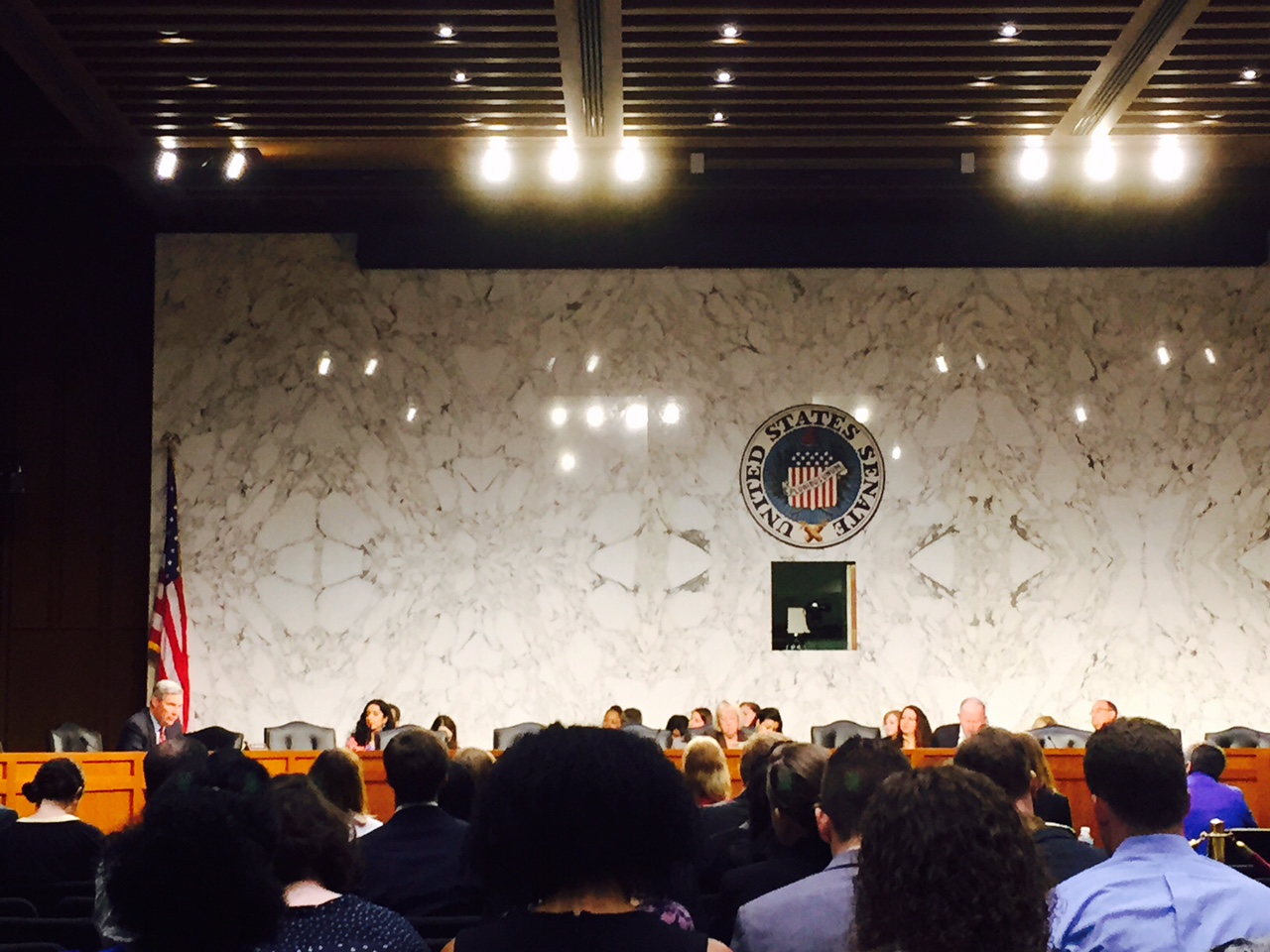
(July 31, 2015) – “There should be no question that sexual violence on campus is a widespread, growing, and unacceptable problem.” So said Sen. Patty Murray (D-WA), the top Democrat on the Senate Health, Education, Labor, and Pensions (HELP) Committee, at a hearing on campus sexual assault this week.
The first panel of witnesses was comprised of a bipartisan group of senators that has led efforts to pass the Campus Accountability and Safety Act of 2015, which RAINN has endorsed: Sens. Claire McCaskill (D-MO), Dean Heller (R-NV), Kirsten Gillibrand (D-NY) and Kelly Ayotte (R-NH). Gillibrand, who submitted with her testimony a letter of support from RAINN, discussed partnering with academic institutions to combat the problem. “This bill, its fundamental objective is to flip the incentives, so that the first time it would actually be in the school’s best interest to solve the problem,” she said. Heller underscored the importance of mandated, government-developed surveys at each school in order to gauge the scope of the problem and the effectiveness of prevention programs.
In the second panel, four witnesses spoke to best practices for preventing sexual assault, supporting survivors and promoting campus safety. University of California President Janet Napolitano, Know Your IX Co-Founder Dana Bolger, NACCOP Executive Director Dolores Stafford, and Association of American Universities Associate Vice President Mollie Benz Flounlacker fielded questions from the committee.
Napolitano highlighted the progress made by the UC system, including the creation of a model MOU in partnership with California Attorney General Kamala Harris.
Bolger drew upon her own experience as a survivor to emphasize the importance of institutional transparency, as well as Campus SaVE and Title IX enforcement, in order to create an environment where survivors are more comfortable coming forward.
Echoing the need for more data, Benz Flounlacker praised the AAU member institutions that conducted campus surveys this spring. She questioned CASA’s mandate for confidential advisors, expressing a concern that they would not be completely confidential.
The panelists concurred on the importance of ongoing student outreach and education, promotion of resources, and allowing survivors to decide if, and to whom, they choose to report their experience or file a complaint.
“We must work to improve confidence in the judicial and campus systems,” McCaskill told the committee. “This will, in turn, increase reporting, support survivors, and punish perpetrators of sexual assault on our college campuses.”
Watch the full hearing.
Be part of the solution: Visit RAINN's Action Center and sign up to stay informed about RAINN’s work to prevent campus sexual assault, including how to support CASA and other key pieces of legislation.
If you or someone you know has been affected by sexual violence, it’s not your fault. You are not alone. Help is available 24/7 through the National Sexual Assault Hotline: 800-656-HOPE and online.rainn.org, y en español: rainn.org/es.